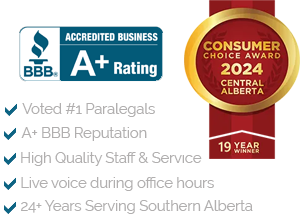A Comparison of Canada’s Waiver Program vs USA Waiver Program

Below is a summary of the differences between Canada’s Waiver Program and the USA’s Waiver program.
| Description | Inadmissible to Canada | Inadmissible to the USA |
|---|---|---|
| Name of Application to overcome inadmissibility | Application for Criminal Rehabilitation | Application for Waiver of Inadmissibility |
| Fees |
$155 (CAD) for minor criminality $1000 (CAD) for serious criminality |
$1100 USD |
| Lenght Valid | If approved, valid for life provided the Applicant does not re-offend. | 6 months to 5 years |
| Types of Crimes Resulting in Inadmissibility | Almost every single type of conviction makes a person inadmissible to Canada. However, for offences punishable by a maximum term of fewer than 10 years in jail, the Applicant is automatically deemed rehabilitated 10 years after committing the offence and no longer needs to apply for Criminal Rehabilitation. | Crimes of dishonesty, violence where harm was intended and drugs result in inadmissibility. The USA ignores offences such as impaired driving, common assault and mischief. Therefore, in some cases, there are fewer restrictions when traveling to the USA with a criminal record when compared to Canada. |
Application to Overcome Inadmissibility
Canada
Application for Criminal Rehabilitation
- Fees
- $155 (CAD) for minor criminality
- $1000 (CAD) for serious criminality
- Duration
- If approved, valid for life provided the Applicant does not re-offend.
- Types of Crimes Resulting in Inadmissibility
- Almost every single type of conviction makes a person inadmissible to Canada. However, for offences punishable by a maximum term of fewer than 10 years in jail, the Applicant is automatically deemed rehabilitated 10 years after committing the offence and no longer needs to apply for Criminal Rehabilitation.
US
Application for Waiver of Inadmissibility
- Fees
- $585 (USD) current
- $1415 (USD) proposed fee increase
- Duration
- 6 months to 5 years.
- Types of Crimes Resulting in Inadmissibility
- Crimes of dishonesty, violence where harm was intended and drugs result in inadmissibility. The USA ignores offences such as impaired driving, common assault, and mischief. Therefore, in some cases, there are fewer restrictions when traveling to the USA with a criminal record when compared to Canada.
Summary
It is only harder to get into Canada, as compared to traveling to the USA with a criminal record, in the short-term. For many offences, visitors to Canada are deemed rehabilitated after 10 years. Otherwise, if their Application for Criminal Rehabilitation for legal entry to Canada is granted, it is good for life. Over 15 years ago, the USA did grant permanent Waivers but currently only issue Waivers valid for up to 5 years. The application fees are only more expensive in Canada for serious criminality. US Waiver fees might soon see a big jump.

